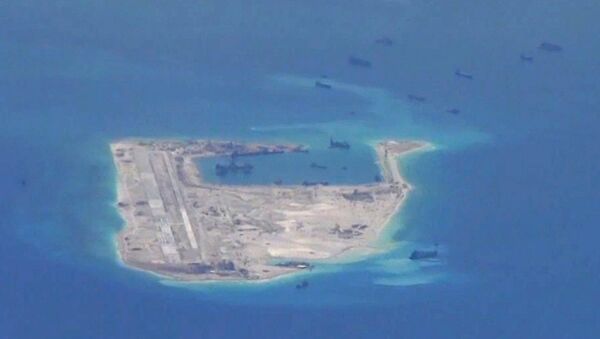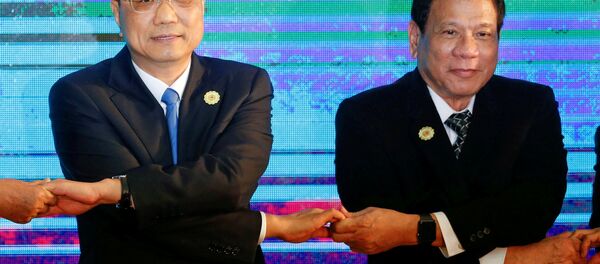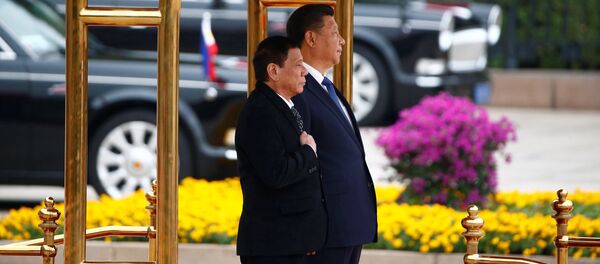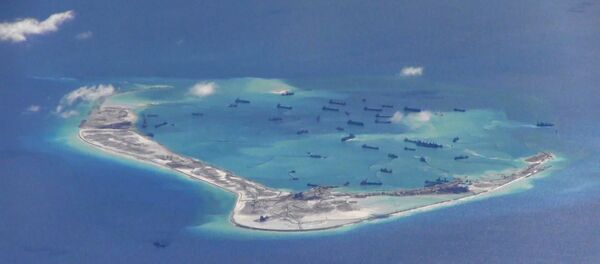Talking to journalists, the Philippine leader described the decision by the Permanent Court of Arbitration in The Hague over South China Sea disputes as a "piece of paper."
"It would not be in keeping with courtesy and goodwill if I am the one to open it. And you will say, will it take a back seat? Of course, it has to take the back seat," he was quoted as saying by Reuters.
However, it would not be correct to say that Vietnam has lost its main ally in those disputes, political analyst Grigoriy Lokshin told Sputnik Vietnam.
"Vietnam never put high hopes in the Philippines. There is a significant difference between their approaches to Beijing. Until recently, the US was the main ally for the Philippines. Washington prompted Manila to launch this case in The Hague since it corresponded with the US strategy to maintain controllable tensions in the region," Lokshin told Sputnik.
The expert suggested that the Middle East and the presidential election distracted Washington’s focus from the presidential election in the Philippines.
"As a result, Duterte came to power. He is a far-left politician and he is related to China. He dramatically changed Manila’s domestic and foreign policy. His change of heart towards the US was aimed at China. Duterte wants to receive significant concessions and investments from Beijing," Lokshin pointed out.
However, there is no unanimity in the Philippines on a broad range of domestic and foreign issues. Instead, there is always public discussion on those issues.
As for Vietnam, it did not join the Philippines’ lawsuit in The Hague. Vietnam has a broad and intense network of ties with China.
"The Vietnamese government understood that if it joined the case China would respond. So, Hanoi neither supported nor condemned the move by the Philippines," the expert said.
Lokshin underscored that the recent statement by Duterte would significantly change the balance of power in the region.
"If even the Philippines does not want the implementation of the court’s decision other countries involved in the dispute will not stand against China," he concluded.




